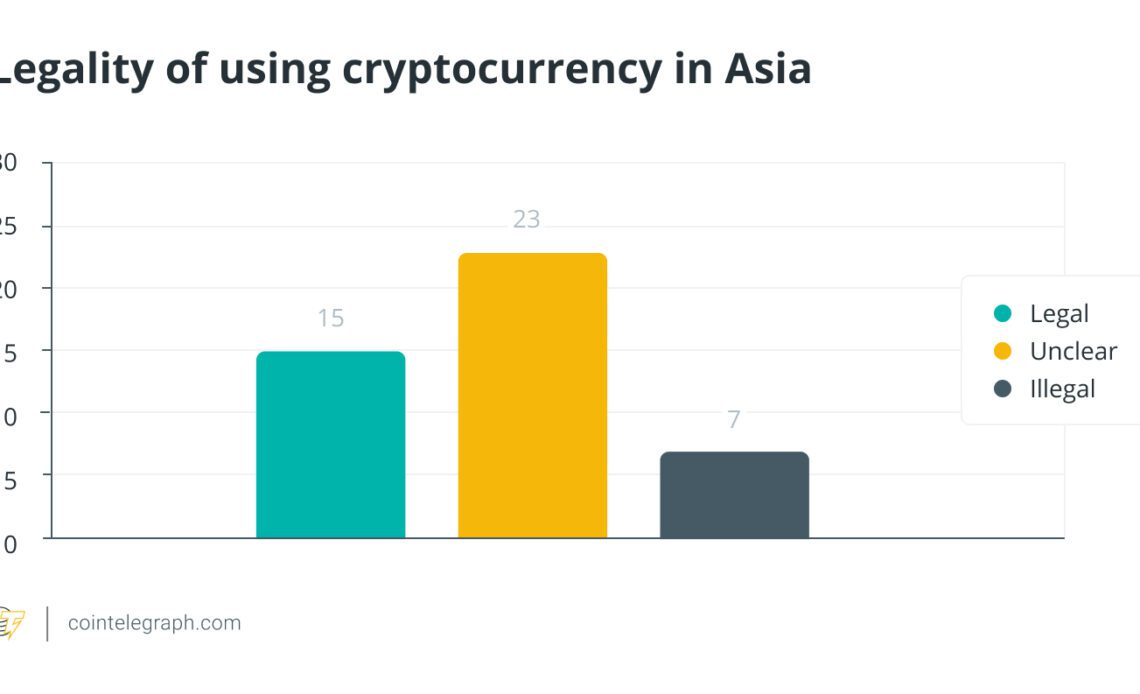The use and popularity of cryptocurrencies have significantly increased in recent years, but their decentralized nature makes them difficult to regulate, and the lack of a clear framework has led to concerns about money laundering, terrorist financing and consumer protection. Over 90 countries have introduced cryptocurrency regulations since 2014, with 28 adopting crypto-related laws in 2022.
The Cointelegraph Research Blockchain Regulation Database provides an overview of the legal landscape surrounding blockchain and cryptocurrency worldwide as well as the regulations that apply to various activities. Through its user-friendly interface, the database provides information on matters such as the legal status of crypto in multiple jurisdictions, the latest news and updates, and compliance assistance with Anti-Money Laundering (AML) and Combating the Financing of Terrorism requirements. It’s updated weekly and reviewed monthly for perfect data accuracy, meaning it can be a helpful tool for those involved in the crypto space.
Explore the Cointelegraph Research Regulation Database report
The regulatory landscape for crypto varies widely across the globe. Countries like Japan and Switzerland have established clear rules around cryptocurrencies. Japan has been recognized as “well developed” and an “early mover” in crypto regulation, while Switzerland updated its Financial Market Supervisory Authority AML ordinance in November 2022 to prevent large payments from being split to avoid identity checks.
Asia
South Korea has implemented a law to regulate virtual assets under which all crypto service providers must register with financial regulators and adjust their AML and Know Your Customer (KYC) systems. The country’s Ministry of Justice also plans to introduce a “Virtual Currency Tracking System” in 2023 to combat money laundering and develop an independent tracking system in the second half of the year.
China adopted a more forceful stance by banning initial coin offerings, a commonly used method to raise funds for cryptocurrency ventures. Moreover, the Chinese government has taken measures to control the crypto exchange and mining industries, expressing concerns over financial instability and illegal activities. Similarly, Vietnam prohibited the use of Bitcoin (BTC) and other similar cryptocurrencies as payment methods.
South and North America
On the other hand, the United States has no overarching regulatory framework for cryptocurrencies….
Click Here to Read the Full Original Article at Cointelegraph.com News…
